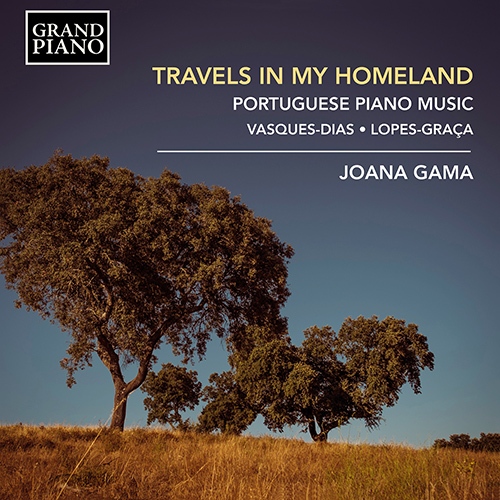
Fernando Lopes-Graça (1906 - 1994)
Fernando Lopes Graça, or Lopes-Graça as he himself used to write, to preserve his two family names, was born in Tomar, a small city northeast of Lisbon, in 1906 and died in Parede, a small town west of Lisbon on the Atlantic Coast, in 1994. He was one of the most prolific Portuguese composers of the twentieth century, with compositions encompassing a wide range of genres. The most relevant aspect of his musical style is, however, his endeavour to use Portuguese folk-music as a medium to forge his personal style, very much like Béla Bartók, although some of his works are very cosmopolitan in style and approach. As a pianist Lopes-Graça regularly accompanied singers in performances of his own works for voice and piano, and as a conductor he dedicated a great deal of his time to conducting the chorus from the Academia de Amadores de Música in Lisbon, for which he arranged a great deal of Portuguese folk-songs. All his works are characterized by a high degree of technical perfection.
The personal life of Lopes-Graça was not an easy one. He never married, and very early in his life was drawn to Communism. Although he was not active as a politician during the dictatorial regime that was ended by the Portuguese Revolution in 1974, he was prohibited from teaching at the National Conservatory in Lisbon, and imprisoned more than once. Yet he maintained a low profile and he was held in high esteem by fellow musicians of every political persuasion for his artistic and personal integrity.


 Grand Piano has gained a reputation for producing high quality recordings of rare keyboard gems. Dedicated to the exploration of undiscovered piano repertoire, the label specialises in complete cycles of piano works by many lesser-known composers, whose output might otherwise have remained unknown and unrecorded.
Grand Piano has gained a reputation for producing high quality recordings of rare keyboard gems. Dedicated to the exploration of undiscovered piano repertoire, the label specialises in complete cycles of piano works by many lesser-known composers, whose output might otherwise have remained unknown and unrecorded.






